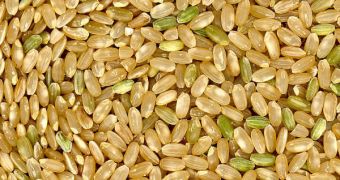According to the Food and Agriculture Organization of the United Nations (FAO), rice is the most important staple food in the world, and is the number-one source of food for billions of people. In countries in tropical Latin America, the West Indies, East, South and Southeast Asia, there is no other crop plant that offers the same benefits, or that is cultivated in the same amount as rice. However, problems plague its production, as the current global food crisis continues to linger on, several years after it started. Now, experts have cultivated a new variety of genetically modified (GM) rice, which is able to fight off pollen allergies.
Developed by scientists in Japan, where a large population and a small, predominately mountainous territory aggravate concerns over food security, the new transgenic rice variety has proven extremely effective and safe in animal studies, and the next natural step would be to start human trials as soon as possible. The research that led to the new development is detailed in the latest issue of the Journal of Agricultural and Food Chemistry, a publication of the American Chemical Society (ACS).
The paper, entitled “26-Week Oral Safety Study in macaques for Transgenic Rice Containing major Human T-Cell Epitope Peptides from Japanese Cedar Pollen Allergens,” comes at a time when nearly 20 percent of the country's population is suffering from cedar pollen allergies. Researchers in charge of the experiments reported that, after 26 weeks of feeding the new rice to a group of monkeys, no visible health threats were detected, and that the animals showed in tests that they were fine.
The global trend among researchers working on genetically modifying various plants is to create so-called “biopharmaceutical” crops, which could, for instance, produce higher levels of nutrients, such as vitamins, minerals and others. The plants would thus work actively to ensure the health of the human population, and would also be available in larger quantities. However, opponents say that the new crops will overwhelm existing, organic strains. Additionally, the new crops are sterile, and can force farmers to buy them yearly from the same company, rather than harvesting their own plantations, PhysOrg reports.

 14 DAY TRIAL //
14 DAY TRIAL //